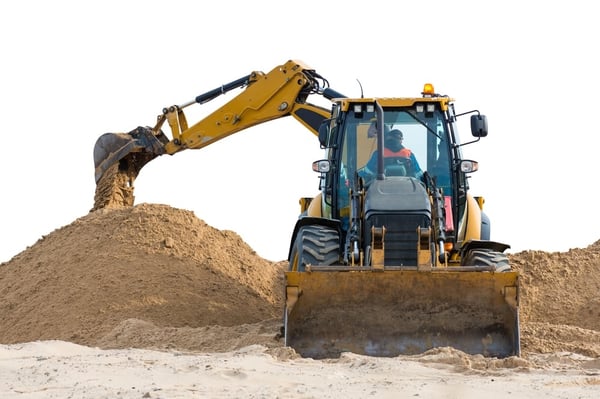When hiring, operating and managing a backhoe it can be uncertain if you are meeting the right licensing and qualification requirements. In particular, it is important to consider and recognise the legal requirements for hiring a backhoe.
Hire a backhoe the right way
Do you need a backhoe licence?
You don’t need a licence to operate a backhoe and under the new Australian Work Health and Safety Regulations conditions, you also no longer need to hold an earthmoving or particular crane (EPC) certificate to operate a backhoe. This also applies for non-commercial jobs on private property as no license or backhoe certification is needed if you are hiring a backhoe, although a machine supplier will brief you on general operational use and safety.
However, you are still required to provide information, training and necessary supervision to ensure the health and safety of operators.
It may also come down to what work you are completing, as in some jobs you might need a licence to abide by to achieve this.
When will you need a licence?
If you want to perform a certain type of demolition work a current demolition work licence will be required if the work includes the following:
- Contains pre-tensioned or post-tensioned structural components
- Involves the use of load shifting equipment (e.g. use of combination front-end loader and backhoe, skid steer loader, excavator, crane ).
- Involves the use of explosives or another induced collapse method.

Requirements for backhoe operations
The Person Conducting a Business or Undertaking (PCBU) Act defines the responsibilities of the person managing the work on the site and ensuring:
- The operator receives adequate information, training, instruction and supervision
- Operators are competent
- The equipment is used appropriately to minimise risk to health and safety
Under the Act, PCBU has a primary duty of care to ensure that workers are trained and capable to do complete the work safely. This training can be both formal and informal.
PCBU describes formal training as completing a nationally recognised course delivered by a registered training organisation for a specific type of plant or training at an industry training school. They describe informal training as on-the-job training delivered or supervised by a competent person, or in-house job-specific training that involves the plant and associated hazards.
Other requirements for becoming a backhoe operator primarily involve on-the-job training or backhoe training programs that you can undertake across Australia to obtain the skills and knowledge needed to operate a backhoe. There are some basic requirements you must meet when enrolling for a backhoe ticket:
- Be able to read and write basic English
- Pass a language, literacy & numeracy assessment (LLN)
- Minimum 16 years of age
- Provide two forms of identification
- Wear steel-capped or safety boots on site; sun protection – hat, long sleeves and pants – is also recommended
If you have never operated earthmoving machinery before it is highly unlikely a backhoe supplier will provide you with a machine for you to operate as the risk of major damage is too high. If you have never used a backhoe or earthmoving machine before we suggest you either undergo thorough training first or hire a backhoe with an operator.
How do I prove my backhoe operator competency?
When proving the onsite competency of the person responsible for managing the work on the site, usually the site or project manager, the following evidence can be provided to ensure they know you're a competent backhoe operator:
- Certificate issued under the repealed Workplace Health and Safety Regulation 2008
- Statement of attainment in a previous Queensland Unit of Competency: Operate a front-end loader/backhoe - OHSCER202A
- Statement of attainment in the current National Unit of Competency Conduct civil construction excavator operations
- Statement of attainment in the National Unit of Competency Conduct civil construction excavator operations (superseded)
- On-the-job training by an experienced and competent person which can be verified by logbooks or previous employer references
- Structured in-house training to operators if resources are available at a workplace
Evidence should also be kept of competency on file as a record in the event of an incident. Make sure you keep any documentation both on file and online in the unlikely event of an incident occurring.


